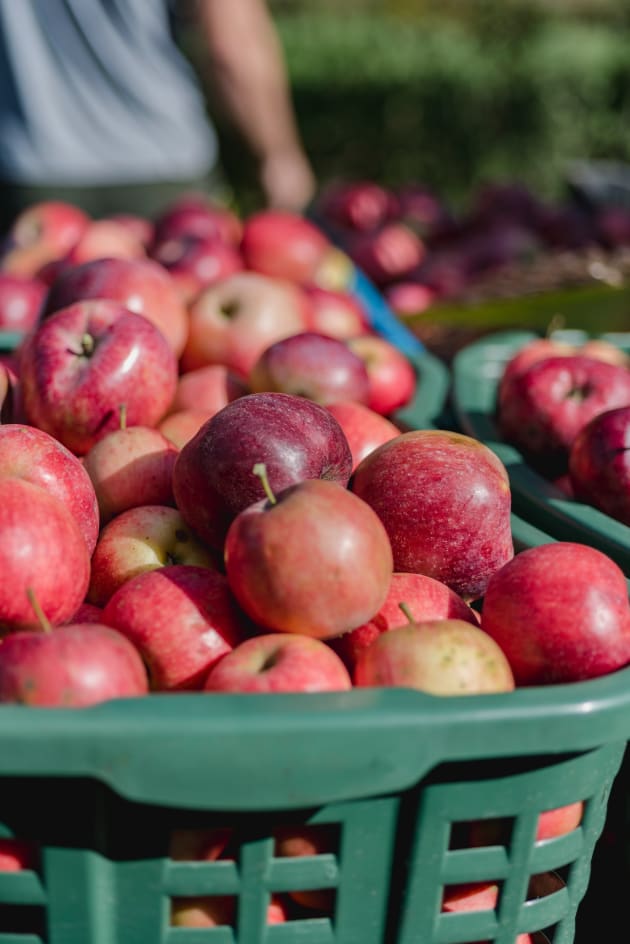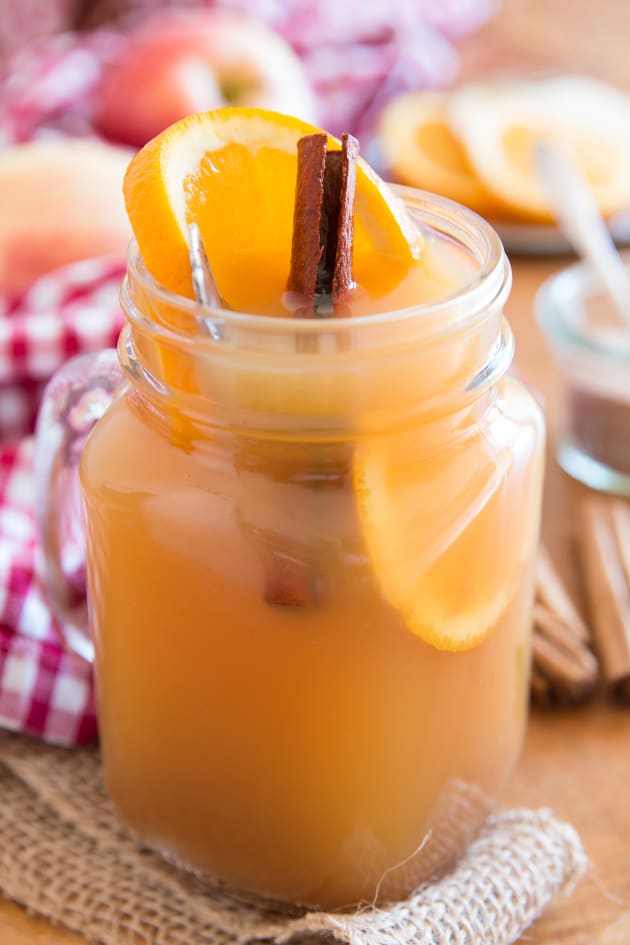How Long Does Apple Cider Last in the Fridge?
Nicole AustinLooking to stock up on this fall essential and wondering how long apple cider last sin the fridge? Here's everything you need to know.
It’s apple cider season and I am excited! Apple cider is one of my fall favorites and always has been. I love the taste of apple cider and how it's equally delicious served warm or cold.
When I think of warm apple cider, I remember it simmering on my grandmother’s stove with cinnamon sticks. She would always serve it at holiday gatherings.
Looking to stock up on this fall essential and wondering how long does apple cider last in the fridge? This guide will share everything you need to know.
Is Apple Cider the Same as Apple Juice?
Apple cider and apple juice are very different. Apple juice is fruit juice that is filtered and sweetened, whereas apple cider is neither filtered nor sweetened.
Cider is a raw juice that has not undergone a filtration process to remove coarse particles of pulp or sediment giving it a richer, more complex apple flavor.
Sediment is the dark brown, silt-like collection at the bottom of the bottle. Many people shake their cider to spread out this sediment and enjoy.
Fresh apple cider is generally cloudy whereas juice is clear. The filtering of the apple juice makes this possible, but this also lends apple juice a longer shelf life.
Apple juice is nearly always pasteurized, whereas cider may not be. Typically you will find pasteurized cider on grocery store shelves and unpasteurized cider at the local cider mill.
Some people prefer cider that has been pasteurized vs raw. That said, raw cider can only be kept out of the refrigerator for 2-3 hours, making it harder to transport or serve.
How Long Does Apple Cider Last in the Fridge?
Unopened apple cider will last in the fridge for up to 1-2 weeks with proper storage. The overall shelf life depends on if you have pasteurized or unpasteurized apple cider.
Look for a printed expiration date for guidance on how long your cider should be good for - especially cider purchased in grocery stores, typically pasteurized.
Sweet cider will go through the fermentation process resulting in traces of alcohol so it's a good idea to enjoy your cider quickly in the autumn months.
How Long Does Apple Cider Last Once Opened?
Apple cider that is stored in a fridge continuously in an airtight container is generally considered good for about 7-10 days once opened for best quality.
The length of time depends on multiple factors, such as the temperature control, whether or not the cider was pasteurized and the storage conditions.
To extend the life of your cider, consider freezing it. Frozen cider, when properly stored, tastes best before 8 to 12 months but will still be good after that.
Apple cider that is stored at 0°F is typically thought to be safe for an extended period or indefinitely, extending the limited shelf life of this perishable product.
Fridge-thawed cider will keep for 3-5 days. Cider that is thawed quickly, such as in a microwave or soaking in cold water, should be used immediately.
Any cider that has gone bad should be dumped down the sink drain or otherwise thrown out to avoid health risks such as food poisoning due to harmful bacteria growth.
How Do I Know if Apple Cider Has Gone Bad?
Does apple cider go bad? Yes! Cider will eventually become carbonated due to fermentation that occurs as part of a natural process.
As cider becomes exposed to oxygen, airborne yeast mixes with the cider’s natural sugars and begins to produce acid. This makes the fizzy cider slowly become alcoholic.
If left for longer periods the alcohol will eventually convert to acetic acid and ultimately convert the apple cider into a bottle of apple cider vinegar.
Cider that is turning will become darker in color and start to froth. It will taste more sour with a vinegar taste. It is not harmful, but as time passes it is also not enjoyable.
It is recommended to dispose of cider once it turns and there are signs of spoilage.
What Are the Best Apples for Apple Cider?
Apple cider can be made from many types of apples, but most people are looking for certain flavors when creating cider.
Much like choosing the best apples for juicing, apples that are used for traditional cider generally include:
- Fuji
- Gala
- Pink Lady
- Jonagold
These apples are sweeter and make for a smoother, more balanced cider. However, some people prefer a more acidic or sour taste. For this, you will choose from:
- McIntosh
- Cortland
- Granny Smith
Cider making incorporates a variety of apples do achieve depth in flavoring. Using several kinds of apples allows for notes that are bitter, sweet and tangy.
How Is Apple Cider Made?
Apple cider should be made from fresh apples that have been picked no more than a couple of days prior to pressing. To make apple cider:
- Wash your apples thoroughly. This is critical for food safety.
- Mash the apples. Once washed, mash and grind apples until they are the consistency of apple sauce. You may leave the skin, stem, and core during this process, but you may need to filter out these larger pieces later.
- Press apples. Once you have mashed the apples to pulp, you will press them. A manual press is adequate for smaller amounts of cider, whereas a hydraulic press is a good investment for bulk or retail sales.
- Filter the pulp. Juice that is extracted will contain small bits of pulp and sediment, which can be filtered out. You will want to remove larger pieces that make it through the pressing stage. Whether or not you filter out finer particles is a matter of preference.
- Customize. Add sweeteners or spices if desired. Cinnamon is a great addition to cider! Other flavoring options include spiking it with rum or vodka, mixing it with cranberry juice, or swirling in some caramel syrup.
Can You Get Sick From Spoiled Apple Cider?
Unpasteurized cider and fruit or vegetable juices can be prone to bacteria growth that can make you sick typically occuring 1-3 days after consumption.
Some bacteria can be dangerous, such as Salmonella or E.coli - for this reason, pregnant mothers and children are urged to only drink pasteurized drinks.
Planning a dinner party and need some inspiration?
How about looking for a new slow cooker dinner idea?
We’ve got you covered in our ever-growing Facebook group! If you’re not a member yet, why not?!
![Facebook!]()
We’re chatting cooking techniques, dessert ideas, and everything in between. If you’re already a member, invite your friends to join us too!
Planning a dinner party and need some inspiration?
How about looking for a new slow cooker dinner idea?
We’ve got you covered in our ever-growing Facebook group! If you’re not a member yet, why not?!

We’re chatting cooking techniques, dessert ideas, and everything in between. If you’re already a member, invite your friends to join us too!
Nicole is a self-published author of fiction novels, and a lover of food and spending time in the kitchen with her six children. She lives in coastal Maine where she loves exploring new recipes especially those that can save time, money and wow a crowd.
Tags: Apples, Fall, Drinks, FAQ








